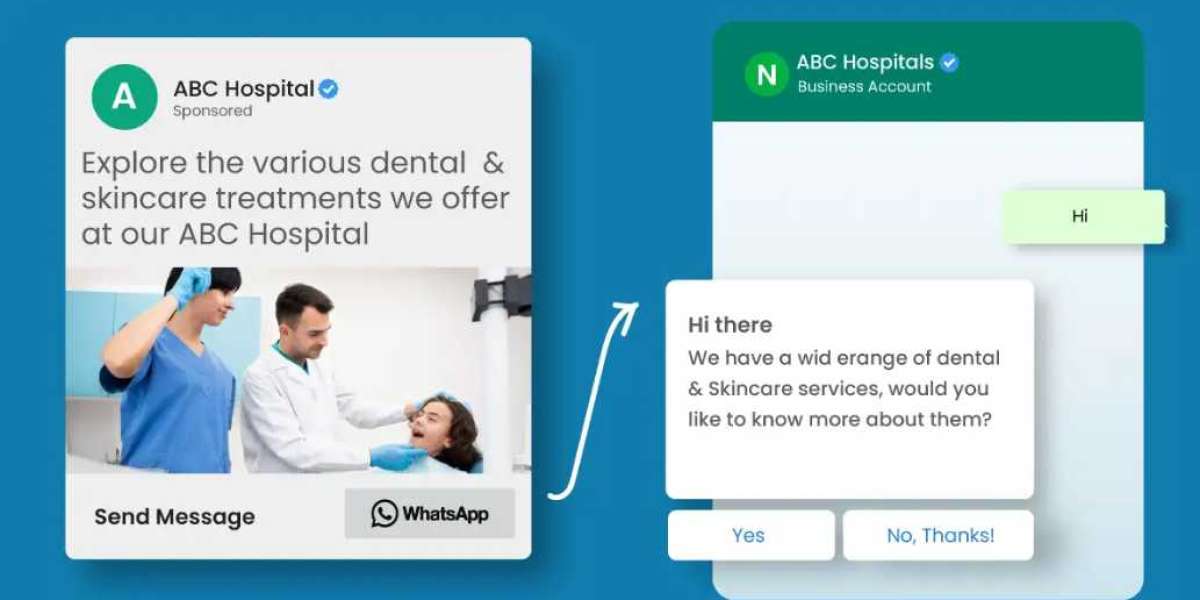In today’s fast-paced world, healthcare communication needs to be quick, simple, and effective. Enter WhatsApp—an app that’s not only familiar but also incredibly powerful in transforming how patients and providers interact. From quick check-ins to post-treatment follow-ups, WhatsApp is making healthcare communication smoother and more efficient than ever.
The Rise of Digital Communication in Healthcare
Modern healthcare isn’t just about treating conditions—it’s about creating lasting relationships and ensuring seamless communication between providers and patients. With everyone juggling tight schedules, healthcare communication must fit into the rhythm of daily life, not add to the chaos.
That’s where WhatsApp for healthcare comes in. Whether it’s scheduling an appointment or asking a quick health question, WhatsApp delivers fast, intuitive communication that makes healthcare feel more accessible. It’s like texting a friend—only it’s about your health. This approach streamlines interactions, reduces stress, and ultimately enhances patient satisfaction.
Why WhatsApp is a Healthcare Game Changer
Healthcare providers and patients alike are embracing WhatsApp for its ease of use and flexibility. Gone are the days of waiting on hold or navigating complicated healthcare portals. WhatsApp allows for efficient communication that’s quick, personal, and highly effective—whether it’s booking appointments, checking on symptoms, or getting advice after a procedure.
Here’s why WhatsApp is so transformative for healthcare:
1. Instant, Real-Time Communication
Immediate Assistance at Your Fingertips
Timely responses are critical in healthcare. With WhatsApp, patients can receive real-time answers from their providers, whether it’s advice on managing symptoms or clarifying medication instructions. Fast, clear communication leads to better outcomes and more satisfied patients.Quick Responses to Urgent Queries
Whether it's a question about a recent diagnosis or a follow-up after a treatment, WhatsApp allows healthcare providers to address patient concerns in real time, reducing stress and building trust.Example: A family doctor can use WhatsApp to provide immediate guidance to a patient with a chronic condition, answering questions or providing reassurance, all while helping them make informed decisions outside of regular office hours.
2. Personalized Engagement with Patients
Tailored Health Updates
With WhatsApp, healthcare providers can send customized messages to patients—whether it's medication reminders, health tips, or appointment confirmations. Personalized communication fosters stronger relationships and keeps patients engaged in their care.Stronger Patient Relationships
Personalized messages make patients feel valued, which enhances overall care and encourages adherence to treatment plans.Example: A nutritionist sends weekly WhatsApp messages with tailored diet plans, giving patients actionable tips that help them stay on track with their wellness goals.
3. Automating Routine Communications
Streamlined Appointment Scheduling
Appointment management can be time-consuming, but WhatsApp automates the process, allowing patients to schedule, reschedule, and confirm appointments directly through the app. Automated reminders reduce no-shows and lighten administrative workloads.Medication Reminders Made Easy
Automating medication reminders via WhatsApp helps patients stay on track with their treatment, ensuring they never miss a dose.Example: A pharmacy automates prescription refill reminders via WhatsApp, boosting adherence rates and preventing missed doses.
4. Improved Post-Treatment Support
Follow-Up Care at Your Convenience
Post-treatment care is just as important as the procedure itself. WhatsApp makes follow-up care simple—providers can check on recovery progress, provide additional guidance, or send post-care instructions directly to patients’ phones.Feedback for Continuous Improvement
WhatsApp also makes it easier to collect real-time feedback from patients, which helps providers improve their services and ensure better care delivery.Example: A physiotherapy clinic uses WhatsApp to follow up with patients after sessions, offering additional exercise tips and collecting feedback on their recovery experience.
5. Effective Health Campaigns and Outreach
Running Public Health Campaigns
WhatsApp is an effective tool for sharing health information with specific patient groups. Providers can send targeted health messages to educate patients on vaccinations, wellness programs, or important health advisories.Real-Time Public Health Communication
During health crises, WhatsApp allows providers to distribute critical updates, tips, and preventive measures in real-time.Example: A community health center uses WhatsApp to send vaccination reminders to at-risk populations, along with easy access to appointment scheduling, ensuring high engagement and timely access to care.
Conclusion: The Future of Healthcare Communication
WhatsApp is transforming healthcare communication in ways that enhance both patient experience and provider efficiency. Whatsapp for Healthcare offers real-time messaging and personalized care, along with automated reminders and follow-ups. This simple yet powerful solution is addressing modern healthcare challenges and improving the overall patient-care experience.
At BizMagnets, we specialize in helping healthcare providers integrate WhatsApp into their communication strategy. Our AI-powered solutions—ranging from bulk messaging and automated appointment scheduling to personalized health updates—make patient engagement seamless and efficient.
Ready to take your healthcare communication to the next level? Visit BizMagnets for free templates and book a demo to explore how we can help you create more efficient, patient-friendly workflows. Let’s modernize your healthcare communication strategy today!

